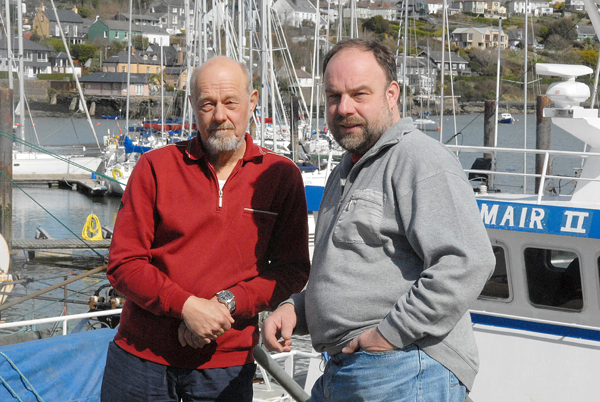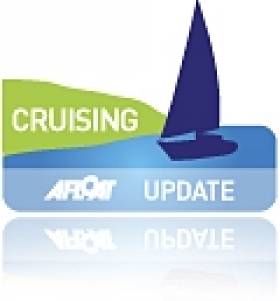Displaying items by tag: Gerhard
Sailing the Atlantic in Aid of World's Poorest Children
Two old seadogs are preparing to cross the Atlantic in a small sailing boat in aid of the world's poorest children.
Rudi Teichmann, a retired sea captain now living in Ballinspittle, Co. Cork and his friend Gerhard Meschter who lives in Germany are both seasoned sailors and they plan to set sail in their 40 year old boat "Mumpes" in November.
During a lifetime spent on the sea Rudi, who moved to Ireland 15 years ago and was once Captain of the sail training ship Fair Winds, has crossed the Atlantic under sail 14 times in both directions.
For years Gerhard has dreamt of sailing the Atlantic. One day he mentioned this dream to Rudi and the idea for this adventure began to take shape.

Rudy and Gerhard set for Transatlantic passage
Initially the two applied to join the famous Atlantic Rally for Cruisers (ARC) but their boat "Mumpes", at just 6 metres 45 centimeters in length, was considered too small by the organisers. Although disappointed initially Rudi and Gerhard decided to sail on their own. They are starting with the ARC fleet - though unofficially - and are taking the same route, so they can measure their performance against the much bigger boats inside the rally.
The two veteran sailors have been busy for some time preparing both "Mumpes" and themselves for the crossing. They recently conducted sea trials in Germany and are now happy that both boat and crew are fit for the voyage ahead. They will trailer the boat to Lagos port in Portugal on November 7 from where they will set sail to St. Lucia in the Caribbean shortly afterwards. They will first call at Madeira and then sail to Gran Canaria, from where the ARC starts.
They chose the children's development organisation Plan as the charity to benefit from their efforts because it has branches in their home countries, Ireland and Germany, and also across the Atlantic. Gerhard and his wife Gesa sponsor a child in Haiti and Rudi and his wife Berny one in Sudan.
Rudi says that he hopes that the sailing fraternities in Ireland, Germany, UK, Australia, the US and Canada will support their attempts to highlight the plight of children in the developing world.
"We want as many people as possible, particularly sailors and other marine enthusiasts, to support us by sponsoring impoverished children through Plan" said Rudi. "For the price of some stainless steel shackles or blocks and some yards of rope you can make a real difference to a child's life".
You can follow the progress of Rudi and Gerhard's "adventure for plan" on their website www.ocean-sailing-for-children.org where you can also sign up to sponsor a child through links to the sites of the various Plan country offices.
For more information about Plan Ireland and its work for children or to sponsor a child directly visit www.plan.ie





























































